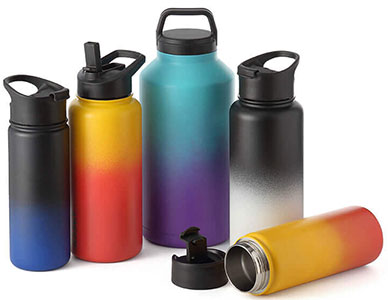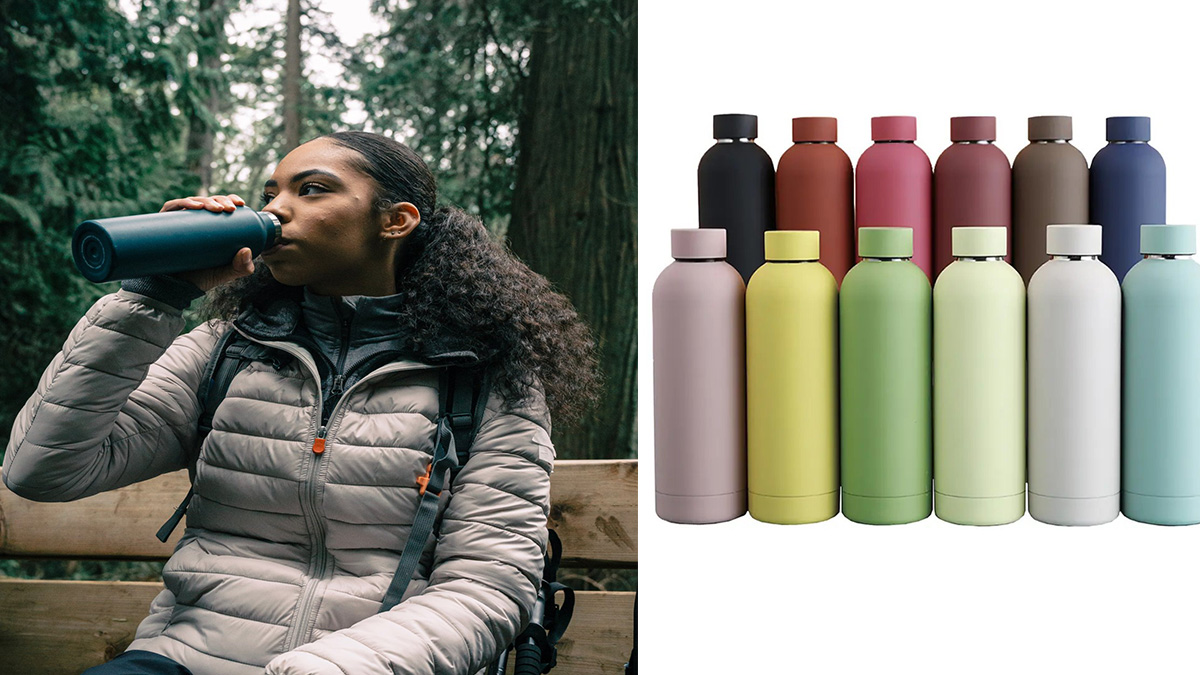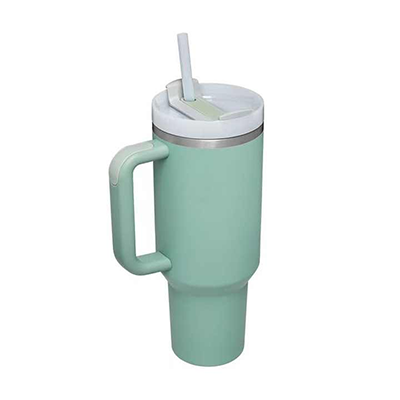Water is essential for the proper functioning of our bodies. However, many people do not drink enough water throughout the day and some may even don’t get hydrated after exercising, which can lead to dehydration. According to a survey released by a medical organization, 75% Americans are dehydrated. It’s common that we may be dehydrated at some point. So the questions comes that how to rehydrate your body and how long does this process take. In this article, we will explore the answer to these question and provide some tips for staying properly hydrated.
1. What is dehydration?
Dehydration is a condition in which the body loses more water than it takes in. It can be caused by a variety of factors, including excessive sweating, diarrhea, vomiting or fever. If you exercise for an hour in the heat and don’t drink enough fluids to replace the water lost through sweat, you may become dehydrated. Similarly, if you have diarrhea or vomiting for several days, you will lose a lot of fluids and become dehydrated. It’s important to rehydrate your body once you find you are in dehydration.
2. Who are easy to get dehydrated?
Not only exercising people are prone to get dehydrated, other groups also need to pay attention not to take the risks of dehydration.
- Infants and young children: Their bodies are not yet fully developed, so they cannot regulate their body temperature as well as adults. This makes them more susceptible to heatstroke and dehydration.
- Older adults: As we age, our bodies become less efficient at regulating body temperature and fluid balance. Sometimes aging people can’t notice the anomalies of their bodies, which can lead to an increased risk of dehydration.
- People with chronic illnesses: Certain medical conditions, such as diabetes, kidney disease or heart disease, can make it difficult for the body to maintain proper fluid balance. These individuals need to be especially careful about staying hydrated during hot weather or physical activity.
- People who exercise heavily: As we mentioned above, exercise causes a lot of sweating, which can lead to dehydration if you don’t replace the fluids lost through sweat. This is especially true for people who exercise in hot or humid environments.
- People who live in hot climates: Living in a hot climate can make it difficult for your body to regulate its temperature and fluid balance. This can increase your risk of dehydration, especially during the summer months when temperatures are high.
3. Is dehydration serious?
Of course, never look down dehydration. It is a condition in which the body loses more water than it takes in, leading to a decrease in the amount of fluid in the blood and other tissues. Dehydration can cause a range of symptoms, including headaches, dizziness, fatigue, dry mouth and throat, lightheadedness, nausea and vomiting, muscle cramps and weakness, heart palpitations, and seizures (in extreme cases). If left untreated, dehydration can lead to serious health problems such as kidney failure and coma. Therefore, it is important to drink enough fluids to prevent dehydration, to rehydrate your body or even to seek medical attention if you experience any symptoms of dehydration.
4. What are the symptoms of dehydration?
Once you feel your mouth or throat dry, it means that you may be in the risk of dehydration. So remember to rehydrate your body when you feel thirsty. If you suspect that you are dehydrated, you should check your urine color. If it is dark yellow or brown, it means that you are not drinking enough fluids. You can also check your skin for dryness and ask yourself if you feel thirsty all the time. If you think that you may be dehydrated, it is important to drink plenty of fluids to rehydrate your body. Water is the best way to stay hydrated, but you can also drink other fluids such as sports drinks, juice or coconut water. It is also important to avoid alcohol and caffeine because they can cause dehydration.
Mild Symptoms
- Constipation
- Low urine output (less than 8 glasses per day)
- Yellowurine
Serious Symptoms
- Dizziness
- Dark urine
- Fatigue
- Decreased skin turgor (skin feels tight and dry)
- Feeling lightheaded or faint when standing up from a sitting or lying position
- Difficulty concentrating or remembering things clearly
- Rapid heart rate
5. What may happen if you don’t rehydrate your body?
If you don’t rehydrate your body in time and let dehydration untreated, it can lead to a number of serious health problems.
- Low blood pressure: Dehydration can cause low blood pressure, also known as hypotension. This happens when the fluid in your blood decreases, which reduces the amount of blood that can be pumped around your body. This can lead to dizziness, fainting and even heart attacks.
- Seizures due to electrolyte imbalance: Dehydration can also cause an imbalance of the electrolytes in your body, which can lead to seizures. Electrolytes are minerals that help regulate the flow of electricity in your body. When they are out of balance, it can disrupt the normal functioning of your brain, leading to seizures.
- Kidney problems or failure: Dehydration can also cause kidney problems or failure if it is not treated. The kidneys are responsible for filtering waste and toxins from your blood, as well as regulating the levels of water and electrolytes in your body. If you become dehydrated, your kidneys may not be able to do their job properly, which can lead to kidney disease or failure.
- Heat Injury: Dehydration can also cause heat injury, which is a condition that occurs when your body cannot cool itself down due to high temperatures or excessive sweating. This can lead to heat cramps, heat exhaustion, or even heat stroke. Heat stroke is a life-threatening condition that can cause organ damage and even death if not treated quickly.
6. How to rehydrate your body?
Thirst is the signal from your body, which shows that you have been dehydrated for a while. At this time, the easiest way to rehydrate your body is to drink water. It’s recommended to drink warm water slowly to rehydrate yourself. For those after exercising, it is important to rehydrate the body by replenishing lost fluids and electrolytes. Drinking water alone may not be enough to fully restore the body’s balance of fluids and minerals. Electrolytes are essential for maintaining proper fluid balance in the body, as they help regulate pH levels and transport nutrients throughout the body. But not all dehydration can be solved by rehydrating your body with water or electrolytes. We have mentioned that dehydration has different levels like light, mild or serious. If you find you are in serious symptoms, it’s better to look for the help of doctors.
7. How long does it take to rehydrate your body?
Rehydration is the process of restoring fluids lost through sweating, vomiting, or diarrhea. The time it takes to rehydrate your body depends on several factors, including the amount of fluid lost, the individual’s age and health, and the type of fluid consumed.
According to a study published in the Journal of Strength and Conditioning Research, rehydrating from mild dehydration can be achieved within 45 minutes by drinking 600 ml of water or beverage containing electrolyte. After exercising or running, your body will be in mild dehydration. Therefore, it usually takes around 45 minutes to rehydrate your body after exercise as long as you stop sweating excessively.
However, if you have indeed sweated a lot or don’t drink any fluids during exercise, you may be experiencing moderate or severe dehydration. The time required for post-exercise rehydration will be longer. In such cases, your body needs more time and an electrolyte-containing solution to replenish the lost water and electrolytes. The more dehydrated you are, the longer it will take to rehydrate. This is because when you are dehydrated, your body loses a significant amount of water and electrolytes, requiring more time to absorb and rebalance these substances. Additionally, an electrolyte-containing solution becomes even more important. Electrolytes are essential chemicals necessary for the proper functioning of the body, including sodium, potassium, chloride, and others. When you are dehydrated, your body also loses these electrolytes, so it is crucial to replenish them by consuming an electrolyte-containing solution.
While our instinct may be to drink as much water as possible as quickly as possible, this can actually be counterproductive or even dangerous. Rapid fluid overload can trigger shock because the body cannot rapidly absorb and process large amounts of fluids. For example, for moderate dehydration conditions like cholera, the Centers for Disease Control and Prevention recommends adults to consume 1 liter of oral rehydration solution per hour. This is because oral rehydration solutions contain an appropriate amount of water and electrolytes that better meet the body’s needs and reduce the risk of fluid overload. And if you are in serious dehydration, please go to hospital for professional medical treatment!
8. How to stay hydrated with reusable water bottle?
Unit price: USD6.99. Send email to [email protected] if any questions.
Reading here, you must have a clear understanding for the importance of rehydrating your body in time. For convenient and hydration, you can have a reusable water bottle. Here are some tips on how to stay hydrated with wholesale reusable water bottles:
- Carry your water bottle with you everywhere you go: Make it a habit to always have your water bottle with you, whether you’re at work, school, or out running errands. This way, you’ll always have access to water and be more likely to drink it throughout the day.
- Choose a water bottle that’s easy to carry: Look for a water bottle that’s lightweight, easy to grip and fits easily into your bag or backpack. This will make it more convenient for you to carry around and drink from throughout the day.
- Keep your water bottle filled: Make sure to fill up your water bottle as soon as it starts to run low. This will help you stay on top of your hydration and ensure that you always have water available.
Rehydrating your body is an important part of maintaining good health and preventing dehydration. Take your water bottle wherever you go and have a good drinking habit to stay fit. Need assistance on purchasing wholesale custom water bottles? Send an email to [email protected] or leave online message, you will get feedback within one day.



